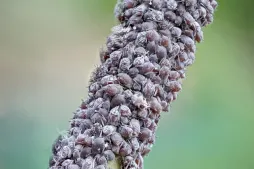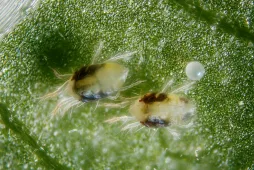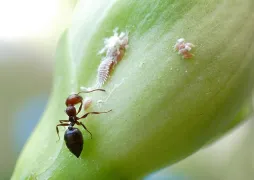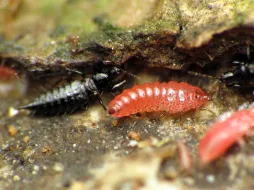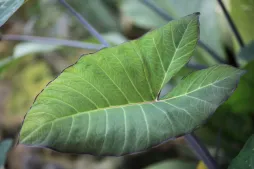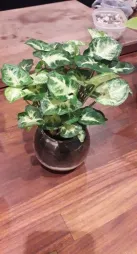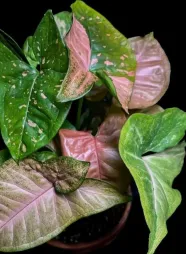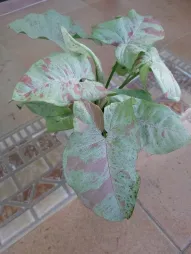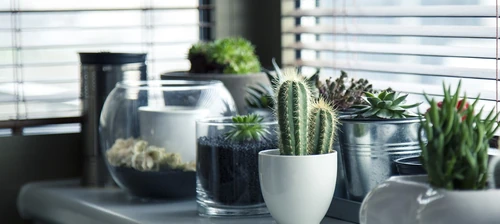Syngonium podophyllum Neon Robusta, a pink-green plant
Syngoniums are native to Central and South America. But Syngonium podophyllum 'Neon Robusta' has never known the tropical forests of Mexico. Its iridescent pink leaves were created in the laboratory.
How to recognize Syngonium podophyllum 'Neon Robusta'?
Syngonium podophyllum 'Neon Robusta' is an upright, bushy houseplant. It measures 20 centimetres in height with a 35-centimetre spread.
At first glance, the plant appears stunted. Yet it has a hairless, flexible, three-centimetre stem. It supports the long petioles at the end of which the leaves grow.
The foliage stands out for its pink color and iridescent sheen. While syngonium podophyllum 'Pink Splash and syngonium podophyllum 'Confetti' have pink dots, Syngonium podophyllum 'Neon Robusta' has a pink upper surface. The sagittate blades are 11 cm long and 8 cm wide. As adults, they abandon their spearhead shape and take on three to five lobes.
Like all other Syngoniums, 'Neon Robusta' is toxic. It causes irritation to the touch and if swallowed. Keep it out of the reach of children and pets, and remember to wear gloves when handling it.
Our maintenance tips
Syngoniums are easy-care plants. But beware: their sap is toxic. Wear gloves when handling them or wash your hands immediately afterwards.
Watering
Before watering, make sure the substrate is two or three centimetres dry by dipping your fingers into the soil. If this is the case, moisten the root ball with non-calcareous water at room temperature.
To avoid drowning the roots, don't leave stagnant water in the dish.
Spray
Dry air favors the appearance of mites and other pests. Mist the foliage of your Syngonium podophyllum 'Neon Robusta to prevent invasions and improve hygrometry.
Use non-calcareous water, such as reclaimed rainwater. Tap water is often too hard and leaves marks on the leaves.
Repotting
Every spring, repot your Syngonium podophyllum 'Neon Robusta' to give it more space.
Repot your Syngonium podophyllum 'Neon Robusta in a pot one size larger than the previous one.
If you've decided to give your plant a climbing habit, install your stake now.
Pour in a bed of clay balls or gravel for drainage and a layer of potting soil for houseplants. Plant your Syngonium podophyllum 'Neon Robusta in the center and add substrate. You can guide the stems along the stake to structure the shape of your plant.
Tamp to remove air bubbles.
If your indoor air is dry, place the pot on a saucer of moist clay balls. Water evaporation improves humidity.
Fertilization
To promote the growth of your Syngonium podophyllum 'Neon Robusta', apply fertilizer in spring and summer.
Add nutrients with a green plant fertilizer.
Cleaning
Dust on leaves interferes with photosynthesis. To make sure your Syngonium podophyllum 'Neon Robusta gets all the available light, clean its foliage with a clean, damp cloth.
Caution! All parts of the plant are toxic. Wear gloves and wash your hands after touching the foliage.
Caution! All parts of the plant are toxic. Wear gloves and wash your hands after touching the foliage.
Prune
You can shorten stems that are too long and bald. Simply cut them with a sharp instrument (pruning shears or scissors). Don't forget to disinfect the blades beforehand to prevent disease transmission.
Cutting
Cutting is carried out during the strong growth phase, generally in spring and early summer.
Syngonium podophyllum 'Neon Robusta are rhizomatous plants. They multiply by dividing clumps.
Take your Syngonium podophyllum 'Neon Robusta out of its pot. Using your hands or a clean, sharp tool, separate a shoot with at least four leaves and a rhizome. The more developed your young shoot, the greater your chances of a successful cutting.
Soak your graft in a glass of clear water at room temperature. Remember to change the water when it becomes cloudy. You can also immerse a piece of charcoal to keep it clean.
Place your cutting in a bright spot away from direct sunlight, behind a window with a curtain for example.
Place your cutting in a bright spot away from direct sunlight, behind a window with a curtain for example.
Diseases / Threats
Information
| Family | Araceae - Araceae |
| Type | Syngonium - Syngonium |
| Species | Syngonium podophyllum - Syngonium podophyllum |
| Lifecycle | Perennial |
| Foliage | Evergreen |
| Exposures | |
| Substrat | |
| Planting method |
In pots |
| Categories | |
| Tag |
Toxic |
| Origins |
Central America South America |
| Hardiness (USDA) | 12a |
| Leaf color |
|
Discover plants from the same family













